Crunching in the Knee: Causes, Risks, and Prevention Methods
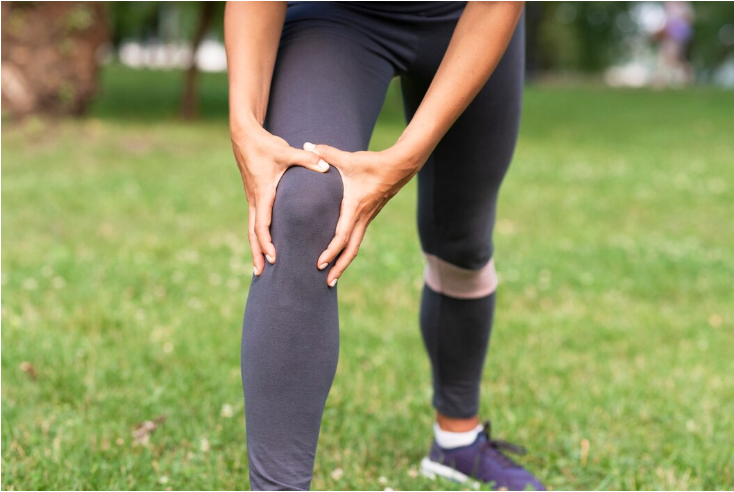
You’re walking down the stairs when you suddenly hear a crunching sound in your knee. It might last only a few seconds, but the question arises: is this dangerous? Many people ask why joints crack, what the possible reasons for knee crunching are, and when they should see a doctor.
Structure of the Knee Joint
The knee joint is a movable connection between three bones: the femur, patella (kneecap), and tibia. These bones are enclosed in a joint capsule, and the space within is filled with synovial fluid. This fluid acts as a lubricant, reducing friction during movement. When bending or straightening the leg, pressure is placed on certain parts of the joint, which can cause the crunching sound in the knee.
Thick cartilage pads help distribute body weight properly and provide stability. They also protect the tibia and femur from friction where they meet. The cartilage layer absorbs shock and ensures smooth movement.
In general, the knee is a complex system whose main task is to facilitate movement throughout life. However, like other body parts, joints age, which is one of the reasons why knees start to crunch with age.
Possible Causes of Knee Crunching
Here are some of the most common reasons for crunching in the knee:
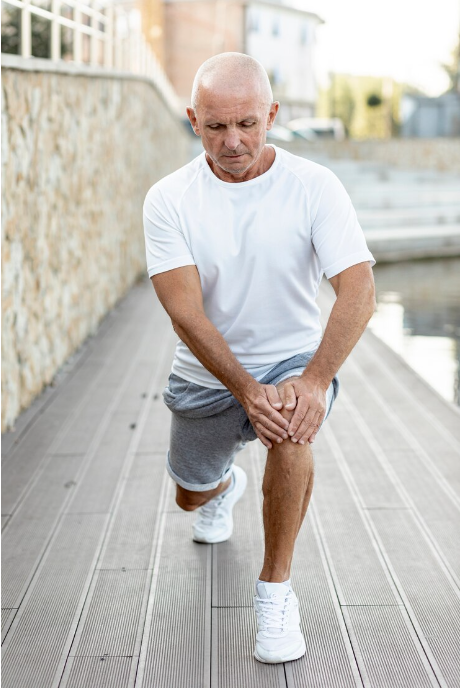
Pathological Knee Crunching: When to See a Doctor?
Pathological crunching in the knee often occurs on its own, such as when bending, and it may not be related to physical activity. The knee may crunch while bending or even during normal walking. Sometimes the crunch is accompanied by a creaking or a specific clicking sound. If you only experience crunching under heavy loads, but feel no discomfort when bending or squatting, this condition is considered physiologically normal.
If a person moves little and occasionally feels crunching in the knee, there is usually no need for concern. However, over time, this can lead to unpleasant consequences such as pain and swelling.
So, when should you see a doctor if your knee is crunching? You should seek medical attention if the crunching is accompanied by pain, discomfort, or other unpleasant sensations. Additionally, do not delay visiting a specialist if you experience burning, tingling, or swelling in the knee area. In such cases, self-treatment, such as applying leaves or using ointments, is not recommended. This approach can exacerbate the problem and worsen your condition.
It is crucial to see a doctor if you notice occasional clicks and feel as though something inside your knee is moving or shifting. This could indicate a disturbance in the knee’s biomechanics.
What Diseases Can Knee Crunching Indicate?
Knee crunching and pain can be symptoms of serious medical conditions, including:
The knee is encased in a special synovial membrane filled with various fluids, including nitrogen, oxygen, and carbon dioxide. When these fluids mix, small gas bubbles can form.
Sudden movements can change the pressure within the joint, causing gas bubbles to form and then burst, producing the characteristic popping sound.
Post-Surgery
Knee crunching often occurs after knee joint replacement surgery. In the first few months after surgery, such sounds can arise during normal movements. This is caused by the adjacent tissues adjusting to the new artificial joint. Sometimes, slight crunching can occur even years after surgery due to the partial wear of prosthetic parts.
If knee pain persists for a long time or if you experience other alarming symptoms, such as unusual sounds during movement, it is important to consult a doctor. Remember that the body is an interconnected system, and crunching in the knee should not be viewed as a problem limited to just the knee. Only timely diagnosis and an accurate diagnosis will help successfully resolve the issue.
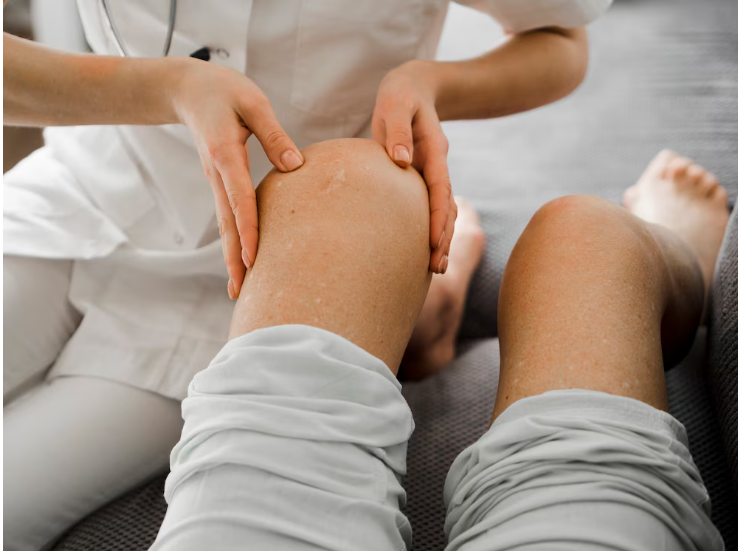
How to Get Rid of Knee Crunching?
Patients often ask how to get rid of joint crunching. The following methods can help improve your condition:
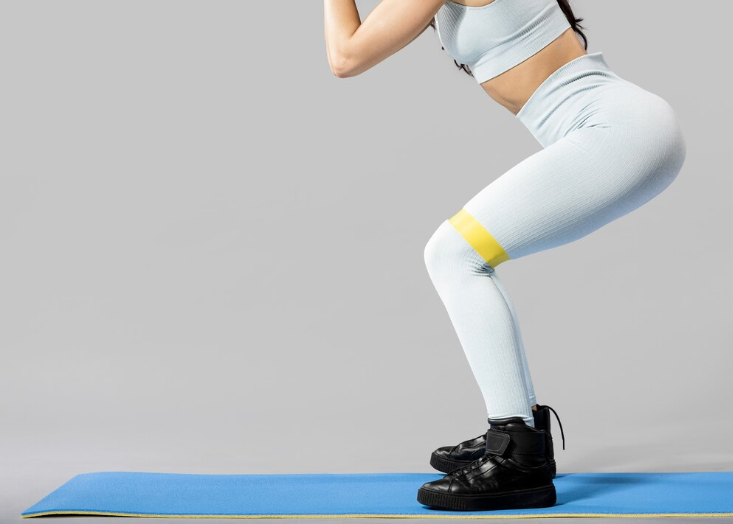
Prevention
Want to forget about knee crunching forever? Only a comprehensive approach will help. It is nearly impossible to restore joint tissues, but excessive and premature wear can be prevented. Follow these simple recommendations:
Knee crunching is often associated with a deficiency in certain microelements. Taking supplements can help improve the situation.
Chondroprotectors, which are based on natural ingredients, can help eliminate crunching and strengthen the knee joint. However, they have a slow-acting effect, with noticeable improvements seen at least six months after starting the treatment. From time to time, it is necessary to repeat the course.
In addition, for knee joint health, it is recommended to take supplements that contain curcumin, resveratrol, fish oil, omega-3 fatty acids, as well as calcium, vitamins D, A, E, C, and the B group (B1, B5, B6, B12).
The online store "Yotsuba Japan" offers a wide range of high-quality vitamins and dietary supplements. Customer reviews testify to their effectiveness. All vitamins for joints and cartilage have a unique composition, developed by leading Japanese specialists. The online catalog offers a variety of vitamin complexes – just visit the catalog and place an order.
For example, you can order the unique innovative product with no world analogs, ROYAL COLLAGEN JELLY, which contains three types of collagen in jelly form. You can also try the bestseller, Chondroprotector NAG tablets, which include cartilage and anti-inflammatory components that positively affect cartilage and connective tissue health.
Preventing Joint Diseases
Preventing joint diseases is easier than treating them. However, if you are already experiencing pain, discomfort, and worsening health, don't delay visiting a specialist. If knee crunching persists for a long time, you should consult a doctor and undergo an examination.
Structure of the Knee Joint
The knee joint is a movable connection between three bones: the femur, patella (kneecap), and tibia. These bones are enclosed in a joint capsule, and the space within is filled with synovial fluid. This fluid acts as a lubricant, reducing friction during movement. When bending or straightening the leg, pressure is placed on certain parts of the joint, which can cause the crunching sound in the knee.
Thick cartilage pads help distribute body weight properly and provide stability. They also protect the tibia and femur from friction where they meet. The cartilage layer absorbs shock and ensures smooth movement.
In general, the knee is a complex system whose main task is to facilitate movement throughout life. However, like other body parts, joints age, which is one of the reasons why knees start to crunch with age.
Possible Causes of Knee Crunching
Here are some of the most common reasons for crunching in the knee:
- Joint stretching. This often leads to an increase in the size of the joint capsule and a drop in pressure inside it. As a result, gas bubbles form, and when they burst, they produce a popping sound.
- Prolonged immobility. A lack of movement can reduce blood flow to the joint, which may also cause knee crunching.
- Lack of synovial fluid. A deficiency of joint fluid or nutrients in it is one of the common reasons for knee crunching. This is often seen in older people, but it can also occur after significant physical exertion. In such cases, the amount of fluid usually restores itself.

Pathological Knee Crunching: When to See a Doctor?
Pathological crunching in the knee often occurs on its own, such as when bending, and it may not be related to physical activity. The knee may crunch while bending or even during normal walking. Sometimes the crunch is accompanied by a creaking or a specific clicking sound. If you only experience crunching under heavy loads, but feel no discomfort when bending or squatting, this condition is considered physiologically normal.
If a person moves little and occasionally feels crunching in the knee, there is usually no need for concern. However, over time, this can lead to unpleasant consequences such as pain and swelling.
So, when should you see a doctor if your knee is crunching? You should seek medical attention if the crunching is accompanied by pain, discomfort, or other unpleasant sensations. Additionally, do not delay visiting a specialist if you experience burning, tingling, or swelling in the knee area. In such cases, self-treatment, such as applying leaves or using ointments, is not recommended. This approach can exacerbate the problem and worsen your condition.
It is crucial to see a doctor if you notice occasional clicks and feel as though something inside your knee is moving or shifting. This could indicate a disturbance in the knee’s biomechanics.
What Diseases Can Knee Crunching Indicate?
Knee crunching and pain can be symptoms of serious medical conditions, including:
- Arthritis: This is an inflammatory process in the joint tissues, often accompanied by severe pain and degenerative effects on the cartilage.
- Arthrosis: Knee arthrosis involves physiological changes in the joint, often characterized by the growth of bony outgrowths. In this condition, tissues may deteriorate, and the amount of synovial fluid may significantly decrease.
- Joint Hypermobility Syndrome: This condition is caused by excessive flexibility and joint mobility. The knee may crunch significantly when bending and extending. This pathology can be caused by genetic factors and various hormonal disorders.
- Knee and joint diseases fall under the expertise of various specialists. If you experience knee crunching and sharp pain, it's best to consult an orthopedist. If the knee has been injured, visit a traumatologist. Joint diseases are treated by rheumatologists. For accurate diagnosis, the doctor may prescribe X-rays, MRI scans, and, in addition to knee examination, may recommend arthroscopy, as well as blood and urine tests.
The knee is encased in a special synovial membrane filled with various fluids, including nitrogen, oxygen, and carbon dioxide. When these fluids mix, small gas bubbles can form.
Sudden movements can change the pressure within the joint, causing gas bubbles to form and then burst, producing the characteristic popping sound.
Post-Surgery
Knee crunching often occurs after knee joint replacement surgery. In the first few months after surgery, such sounds can arise during normal movements. This is caused by the adjacent tissues adjusting to the new artificial joint. Sometimes, slight crunching can occur even years after surgery due to the partial wear of prosthetic parts.
If knee pain persists for a long time or if you experience other alarming symptoms, such as unusual sounds during movement, it is important to consult a doctor. Remember that the body is an interconnected system, and crunching in the knee should not be viewed as a problem limited to just the knee. Only timely diagnosis and an accurate diagnosis will help successfully resolve the issue.

How to Get Rid of Knee Crunching?
Patients often ask how to get rid of joint crunching. The following methods can help improve your condition:
- Strengthening muscles: Perform exercises to strengthen your muscles, which can improve the stability of the knee joint.
- Stretching: Regular stretching can help maintain joint flexibility and reduce strain.
Weight correction: Excess weight puts additional strain on the knees, so losing weight may reduce crunching and discomfort. - Proper nutrition: Include foods rich in omega-3 fatty acids (fish, chia seeds, nuts), which have anti-inflammatory properties. Incorporate foods containing glucosamine and chondroitin (meat, seafood) to support joint health.
- Use of orthopedic aids: Orthopedic insoles or special knee braces can reduce stress on the knees and help minimize crunching.
- Massage and physiotherapy: Professional massage or physiotherapy can improve blood circulation and relieve muscle tension.
- Anti-inflammatory medications: Use anti-inflammatory agents or supplements to reduce inflammation in the joints, as recommended by your doctor.
- Rest and avoiding overload: Avoid prolonged standing or exercises that can strain the knees. Rest and recovery are also essential.

Prevention
Want to forget about knee crunching forever? Only a comprehensive approach will help. It is nearly impossible to restore joint tissues, but excessive and premature wear can be prevented. Follow these simple recommendations:
- Healthy sleep: Synovial fluid, which nourishes the joints during movement, is produced during sleep. Therefore, it is important to get enough sleep so that synovial fluid can compensate for the day's loads.
- Balanced diet: Your diet should be varied and include foods that are beneficial for joint health. These include foods rich in omega-3 and vitamin K, such as fish oil, flaxseed oil, cabbage, greens, and chia seeds.
- Regular physical activity: Don't neglect physical exercise. Swimming, yoga, cycling, and walking help maintain knee health. Therapeutic gymnastics are beneficial if joint problems or diseases already exist.
- Maintaining a healthy weight: Excess weight puts extra pressure on the knees, so keeping your weight within a healthy range reduces this strain.
Calcium-based supplements: Calcium helps maintain joint health. The daily requirement for adults is 1000–1200 mg, and it is best absorbed with vitamin D3. - Massages and therapeutic baths: These procedures help relax muscles and joints, relieving tension.
Properly chosen footwear: High heels, as well as flat soles, can put additional strain on the knee joint. The optimal choice is shoes with a wide heel no higher than 4 cm. If you choose sneakers, opt for models with good arch support, or use special orthopedic insoles.
Knee crunching is often associated with a deficiency in certain microelements. Taking supplements can help improve the situation.
Chondroprotectors, which are based on natural ingredients, can help eliminate crunching and strengthen the knee joint. However, they have a slow-acting effect, with noticeable improvements seen at least six months after starting the treatment. From time to time, it is necessary to repeat the course.
In addition, for knee joint health, it is recommended to take supplements that contain curcumin, resveratrol, fish oil, omega-3 fatty acids, as well as calcium, vitamins D, A, E, C, and the B group (B1, B5, B6, B12).
The online store "Yotsuba Japan" offers a wide range of high-quality vitamins and dietary supplements. Customer reviews testify to their effectiveness. All vitamins for joints and cartilage have a unique composition, developed by leading Japanese specialists. The online catalog offers a variety of vitamin complexes – just visit the catalog and place an order.
For example, you can order the unique innovative product with no world analogs, ROYAL COLLAGEN JELLY, which contains three types of collagen in jelly form. You can also try the bestseller, Chondroprotector NAG tablets, which include cartilage and anti-inflammatory components that positively affect cartilage and connective tissue health.
Preventing Joint Diseases
Preventing joint diseases is easier than treating them. However, if you are already experiencing pain, discomfort, and worsening health, don't delay visiting a specialist. If knee crunching persists for a long time, you should consult a doctor and undergo an examination.
Posted:
September 26, 2024

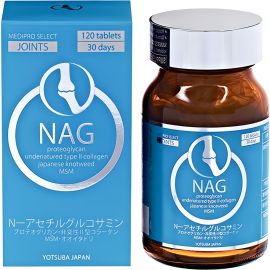
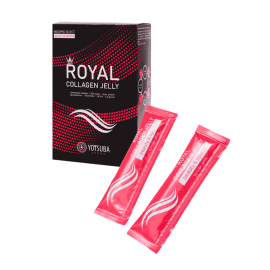





Log In